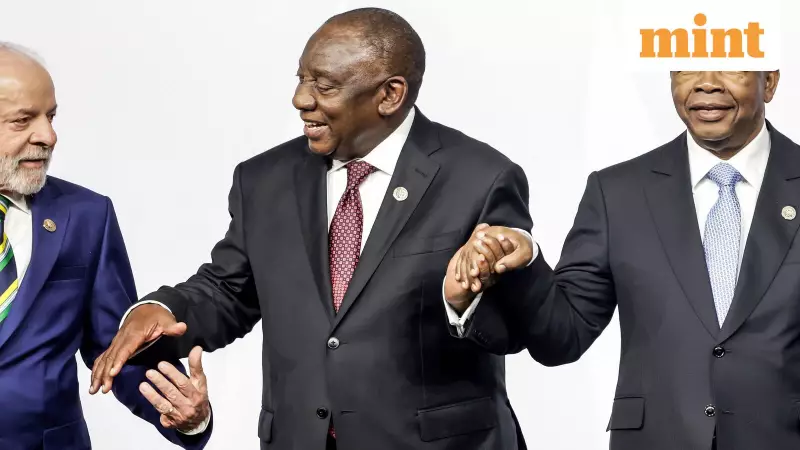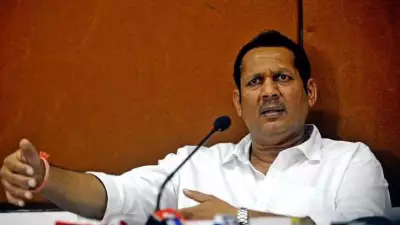
In a significant diplomatic achievement, South African President Cyril Ramaphosa successfully steered the G20 Leaders' Declaration to adoption at the Johannesburg summit, framing it as evidence of a revitalised spirit of international collaboration. This milestone was reached despite a conspicuous boycott by the United States, which openly objected to the summit's core priorities.
A Declaration Forged Amidst Division
The two-day gathering concluded on Saturday with the declaration's adoption, even as the United States, under President Donald Trump, refused to participate. The US boycott was reportedly based on unfounded allegations against South Africa's Black-led government. Washington voiced strong opposition to the agenda set by Pretoria, which placed a sharp focus on climate action, debt relief for developing nations, and tackling global inequality.
Prior to the summit, President Trump had publicly dismissed these very issues, rejecting initiatives aimed at assisting poorer countries with climate adaptation, clean energy transitions, and reducing their crippling debt burdens. Nevertheless, President Ramaphosa managed to garner broad support for language that has historically faced resistance from Washington.
Key Points of the Landmark Declaration
The adopted document outlined several critical points that mark a victory for developing economies. It explicitly acknowledged the seriousness of climate change and underscored the necessity for ambitious targets on renewable energy. Furthermore, it highlighted the punishing debt service burdens that are stifling economic growth in poorer nations.
At the closing ceremony on Sunday, a triumphant Ramaphosa stated, "This declaration shows that our shared goals outweigh our differences." He added, "It reflects a renewed commitment to multilateral cooperation." The US was not alone in its dissent, as Argentina, led by Trump-aligned President Javier Milei, also opposed the declaration after skipping the meeting.
Diplomatic Tensions and a Global South Victory
The summit unfolded against a backdrop of heightened geopolitical strife, particularly concerning the war in Ukraine. The final 122-point document contained only a single, broad reference to global conflicts, which disappointed several nations seeking a stronger condemnation of Russia's actions.
French President Emmanuel Macron recognised the historic nature of the first G20 hosted on African soil but pointed out ongoing divisions. "Meeting for the first time on the African continent marks an important milestone," Macron said. "But the bloc is struggling to have a common standard on geopolitical crises."
The diplomatic rift widened during the ceremonial handover of the G20 presidency. South Africa refused to transfer the role to a "junior" US official, insisting on representation at the head of state or ministerial level. Washington accused Ramaphosa of obstruction, with the White House Press Secretary remarking the South African leader was "running his mouth a little bit against the United States."
Despite the turbulence, the summit was hailed by activists as a symbolic win for the Global South. Max Lawson of Oxfam noted, "This is the first-ever meeting of world leaders where the inequality emergency was put at the centre of the agenda." Echoing this sentiment, Namibian President Netumbo Nandi-Ndaitwah emphasised, "The importance of addressing development priorities from the African perspective cannot be overemphasized."





